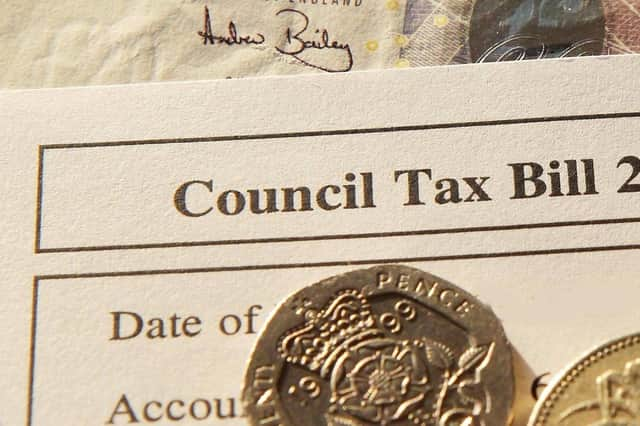Council tax hikes not being considered 'lightly', say local authority leaders


Stark rises in council tax are not being considered "lightly", local authority leaders have said, as they prepare to launch a consultation on the hikes.
A leaked paper from local authority body Cosla has suggested council tax increases of up to 22.5 per cent for the highest bands in a bid to boost funding.
Advertisement
Hide AdAdvertisement
Hide AdNo final decision has yet been made on the plans – which would see the implementation of multipliers in the highest bands in a similar way to 2017 – but it is understood they will be put out for consultation in the coming weeks.
Council leaders agreed to examine the move during a meeting on Friday. A Cosla spokesman said: “This is not something that councils take lightly – we understand the pressures on family budgets amidst the cost of living crisis. However the essential services councils provide require investment and now that leaders, on Friday, have agreed to work with Scottish Government on the consultation, we will work on the final details.”
The leaked paper said repeating the 2017 changes would mean council tax increasing by 7.5 per cent, 12.5 per cent, 17.5 per cent and 22.5 per cent for properties in valuation bands E, F, G and H respectively if rates remain unchanged. The average increases, at 2023-24 council tax rates, would be around £127, £281, £464 and £741 per dwelling.
It said this could result in around £177 million of additional funding for councils.
Dave Moxham, deputy general secretary of the Scottish Trades Union Congress (STUC), said the organisation supports the increases, but the system must be scrapped and replaced.
He said: “We do need the council tax scrapped – and apparently we have most political parties that agree with that – but no action has been taken now for years and that action needs to start. What the Scottish Government, what Cosla are doing at the moment is tinkering around the edges to try and make the system that we’ve got more progressive, because it does need to be more progressive.”
He added: “It really is a sticking plaster measure and we need more radical action.”
The proposed increase, Mr Moxham said, is “on balance” more progressive than the current system, but it does “catch” some people with relatively low incomes in higher value homes.
Advertisement
Hide AdAdvertisement
Hide AdThe STUC proposes an expansion to the council tax reduction scheme, which would support those struggling with increases to their payments, but Mr Moxham admitted this would be “terribly complicated” because the current system is “very bad”.
Council services in recent years have been struggling under the weight of real-terms cuts to funding – compounded by rising inflation in the past 18 months – with local authorities engaging in an annual battle with the Scottish Government over funding.
Mr Moxham predicted a “grim” couple of years ahead if changes are not made to the current tax system.
Labour MSP Mark Griffin said: "This eye-watering proposal is just the latest in sticking-plaster politics and doesn't get to the heart of the issue. Councils have been left scrambling to fill the budget blackhole that the SNP created and tweak an outdated Tory Ccouncil tax system that the SNP promised to scrap.
"Whilst thousands of Scots struggle with the cost of living, the SNP are focussed on covering up their own black hole in funding by pushing the expenses onto ordinary homeowners. Ordinary Scots should not have to pay the price for the SNP's economic illiteracy."
Scottish Conservative finance spokeswoman Liz Smith said: “The SNP promised comprehensive reform of the council tax system but, as usual, have delivered nothing other than slashed budgets, with the result that many basic public services are at breaking point.”
Comments
Want to join the conversation? Please or to comment on this article.